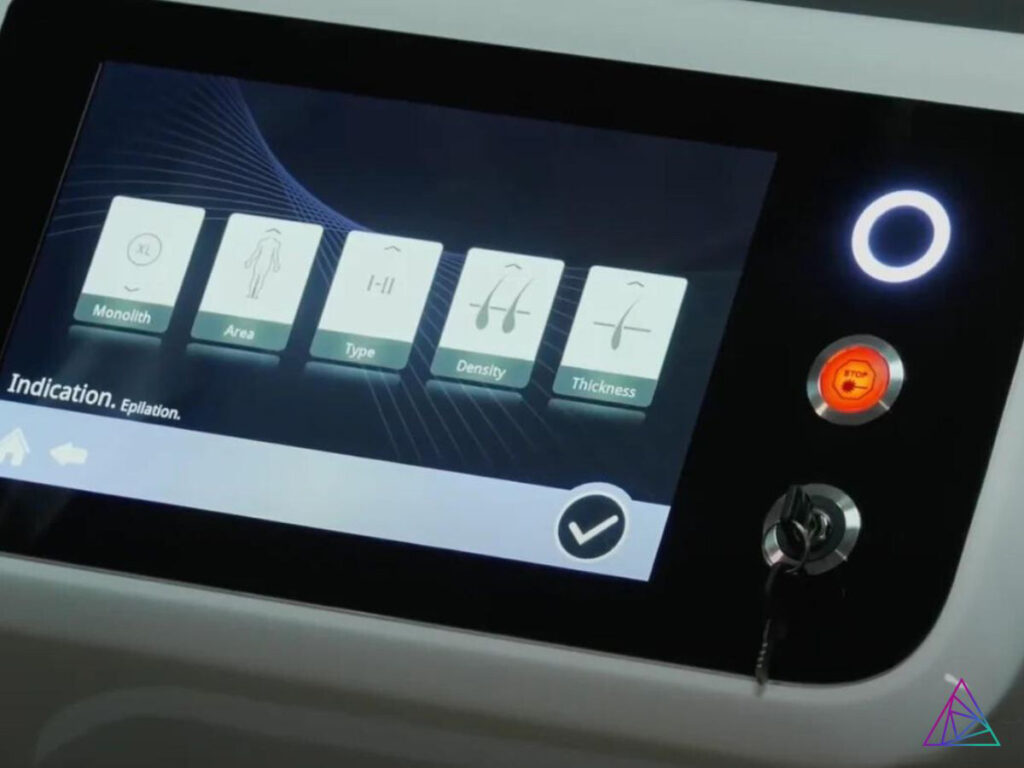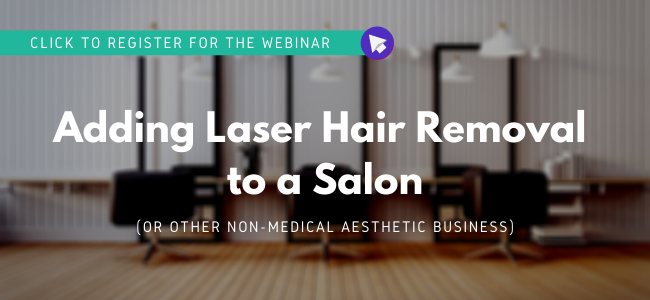If you’re considering adding laser hair removal to your business, it’s crucial first to determine your state’s laser laws and regulations. These regulations will dictate what kind of credentials, training, certification, and oversight you will need. Interested laser users should know that laser hair removal is more strictly regulated across the country than laser tattoo removal. Keep reading for more insight into what you’ll need to do to get started with laser hair removal!
There’s no exact reason as to why that is, though there are certainly many contributing factors:
- Treatments are going to be much more dependent on Fitzpatrick skin types, hair types, and color (density and coarseness)
- Hair removal has been around for longer than tattoo removal
- The physical mechanism of laser hair removal is potentially more hazardous than a Q-switched laser for tattoo removal.
Laser treatments are generally considered medical practice. As such, most states have some level of medical oversight that needs to happen- this may be an MD or DO, delegating the procedure to another practitioner. You’ll find that there is very little gray area surrounding laser hair removal laws. Laser hair removal specifically qualifies or disqualifies practitioners allowed to fire the laser (i.e., the delegatee). This delegatee performs the procedure as an extension of the medical director, who may be on or off-site, as dictated by state regulations. States have defined the qualification of who may fire the laser, either based on background education, laser-specific education, or both. Here’s a quick explanation of what that means as you try to incorporate laser hair removal into your business.
States requiring background education:
Laser hair removal is indeed a medical procedure. We use a high-power laser device to target the hair shaft and deliver energy to the hair follicle and papilla to prevent future growth. With this definition, it’s not surprising that many states – at least 18, to be precise – require practitioners firing these types of powerful lasers be medical professionals. In this case, these practitioners firing the laser will typically be an RN, NP, or PA, with a medical director (MD/DO) performing their duties on or off-site while also requiring a medical director to complete a good-faith exam. The good-faith exam is important to assure the medical director is aware of treatments performed, and delegation is done wholly within the doctor’s purview. Depending on your state’s telemedicine rules (which have changed due to our adaptations around COVID-19), this good-faith exam could even happen remotely.
States requiring laser hair removal specific education:
While all states (and frankly, medical directors) require some level of safety training when firing a Class IV laser in a medical setting, a significant number of states require additional training that may require a much longer course than you’d typically get during installation. Some may be a 24-40 hour didactic course, with a certain number of hours or treatments performed (so-called “body sites” in our home state of Texas), as well as treatments observed. Inevitably, this process may take additional weeks or longer to complete. In many instances, this may lighten the load for which a medical director is responsible (i.e., on-site vs. off-site delegation of procedures). Medical Director Unique cases:
Depending on the state regulations around the Board of Nursing and the Board of Medicine, you may be able to have an RN, NP or PA serve as a medical director without any additional MD/DO oversight. It’s simply a matter of finding what is within each professional’s “scope of practice” and what is within their delegated authority. This is a big question for many aspiring laser treatment providers and one that we encourage all entrepreneurs to explore if it help open the doors to a new revenue stream in your business.
As you can see, there are several variables to consider when exploring adding laser hair removal to your existing business. It’s a great investment to make if you’re able to navigate the regulations correctly and efficiently. However, there’s no single right way to get to market in the United States- state rules vary significantly even across adjoining borders. Reach out to your Astanza Sales Representative to learn more about your specific state situation- we’re happy to offer guidance on where to look and how to make it happen!
To learn more about adding laser hair removal to your business, click here or below to watch the pre-recorded webinar, “Adding Laser Hair Removal to Your Salon, Med Spa, or Business!” This webinar is on-demand and is free to view. Don’t forget to download the corresponding ebook as well, Expanding Your Aesthetic Business with Laser Hair Removal.










